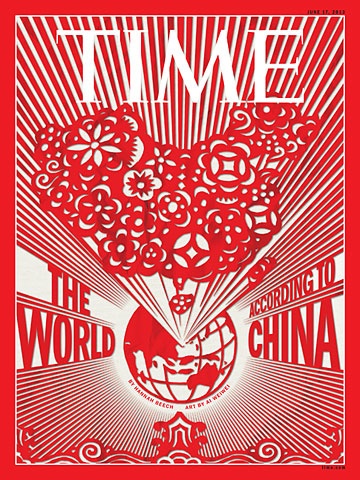
Liu mingfu likes to think he is the oracle of a new era. A retired colonel with the ramrod bearing of a career soldier, he has never been to the U.S. but is a self-proclaimed expert on Sino-American relations: he lectured on the subject at the National Defense University in Beijing, the training ground for the People's Liberation Army (PLA). Three years ago, Liu wrote a best-selling book called China Dream: Great Power Thinking and Strategic Positioning of China in the Post-American Age. In his hawkish tome, Liu explained that China needed a strong, martial leader and offered advice for his resurgent nation: "When China is threatened, it has no choice but to use war to protect its right to rise, to break through America's military containment."
In March, Xi Jinping, the broad-shouldered son of a Communist Party revolutionary, completed a power transition that will see him guide China for the next decade. Liu is delighted. Since Xi's ascension--he assumed the leadership of the Chinese Communist Party in November and became President three months ago--he has talked tough on territorial disputes and predicted that China will become the chief military power in the Asia-Pacific region by 2049. The 59-year-old leader, who is meeting with U.S. President Barack Obama on June 7-8 in a rare two-day summit in California, warned that the PLA should be "prepared for war" and has toured a seemingly endless number of domestic military installations. Most tellingly, he has adopted "China Dream"--Liu's catchphrase--as his motto, pledging that "we must achieve the great revival of the Chinese nation, and we must ensure there is unity between a prosperous country and a strong military."
Those words were delivered in December as Xi inspected a guided-missile destroyer that cruises the South China Sea, a waterway that China claims as mostly its own, much to the fury of other Asian nations. The new Chinese President's vigorous public persona contrasts with that of his bland predecessor, Hu Jintao, who chose as his leadership slogans "peaceful development" and "harmonious society"--pleasant enough goals, perhaps, but hardly the proclamation of an emerging superpower. "Xi has used very tough language," says China scholar David Shambaugh, whose recent book China Goes Global: The Partial Power examines the country's global footprint. "This is very concerning and illustrates a much harder type of nationalism than that of his predecessor Hu."
